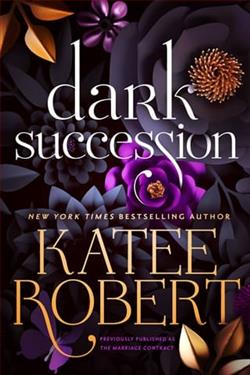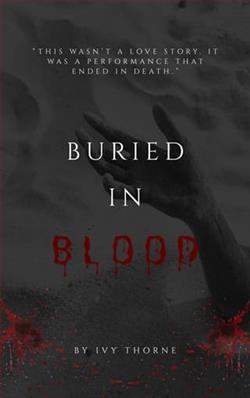Page 123 of The Breaking Point
Mom handed me a napkin. “It’s about Brady.”
When I groaned, she added, “And don’t tell me you don’t have time to talk about him. You haven’t been doing anything since your internship ended. You’ve just been moping around the house. Have you even talked to Kelly? Or other friends?”
I made a face. “I haven’t been moping,” I muttered.
“And you decided not to take a full-time job with the Blades.” At my surprised look, Mom just smiled. “Honey, there are no secrets safe from me.”
“Who told you?”
“Your dad.”
“Meaning he was the one who tried to pull strings to get me an offer.” I scowled.
“And if he did? He knows you’d be great at the job. He wouldn’t have done it if he didn’t care about you, either. We both knew how excited you were about getting the internship.”
I sighed. “I was excited. I thought it would launch me into something even better, if not a job at the Blades, then with another amazing company.”
When I’d graduated from college and gotten the offer for the internship, I’d been over the moon. Not just because I was going back to LA and would thus be closer to Brady, but because I’d genuinely enjoyed my marketing and PR classes at UNLV.
But that’d changed. Suddenly my career had been put on the back burner. I’d gotten so focused on Brady and our on-again, off-again relationship that the internship seemed unimportant.
I wasn’t proud of that fact. It wasn’t very feminist of me, either. I grimaced inwardly. But I also knew that love could make a person go a little crazy.
“I just hate to see you throw away a potentially amazing opportunity,” said Mom.
“It’s not throwing it away.” I struggled to explain. “I just need some time away from everything. And everyone. I’ve never had a life that didn’t revolve around hockey.”
Mom gave me a pointed look. “I know you’re sad about Brady, too. We all are.”
That made me scowl. “You are? Since when? You were the one who told me that I shouldn’t date him. I would’ve thought you’d be happy that we broke up.”
“I’m never happy seeing you unhappy.” Mom was playing with her wedding ring now. “Your dad came to me and told me something that you should know. Not just about the job offer thing. It’s about Ben and Brady, about the accident.”
I set down my doughnut, my stomach twisting. “I already know what Brady did. He told me himself.”
“No, you don’t. Did Brady ever tell you that your dad is the one who made him keep silent? That he forced him not to tell me or you that he was the one who gave Ben my car keys?”
I couldn’t breathe. I stared at my hands, feeling like the world had just tipped on its axis.
I’d been so angry with Brady for lying to me about Ben and his car accident. Why hadn’t he told me this?
“Your dad regrets making Brady not say anything,” Mom said. “But at the time, he was doing it to protect us. You know your father. He tends to think he’s the strongest of us all and has to shoulder all of our burdens.”
Mom took my hand. I realized I was shaking.
“Brady didn’t lie to you. At least, not because he wanted to. He had to. Your dad gave him no choice,” Mom said.
I felt like the ground shifted under me. I’d always known Dad was the type to meddle, but this? This was on another level entirely.
I shook my head. “Oh my God. But I don’t understand why Brady didn’t tell me anyway? Was he really that afraid of Dad?”
Mom gave me a hard look. “You know that Brady looks up to your dad like a father. Brady feels like he owes us for taking him in, so is it that surprising that he’d respect your dad’s decision?”
“Owes us? You guys took him in because that’s what you did. You took in foster kids. Brady wasn’t the first one you’d fostered.”
“No, but it’s complicated. Brady probably always felt like he was a burden. Not just for us, but for every family he was placed with. Even when your dad and I did everything to show Brady he wasnota burden. That’s the type of thing you can’t just let go of, with the instability he’d experienced as a kid.”
Mom’s expression was sad. “You’re lucky, sweetheart. You’ve never had to doubt that we wanted you, or that we loved you. Can’t you see that Brady sees relationships as transactional instead of unconditional?”















